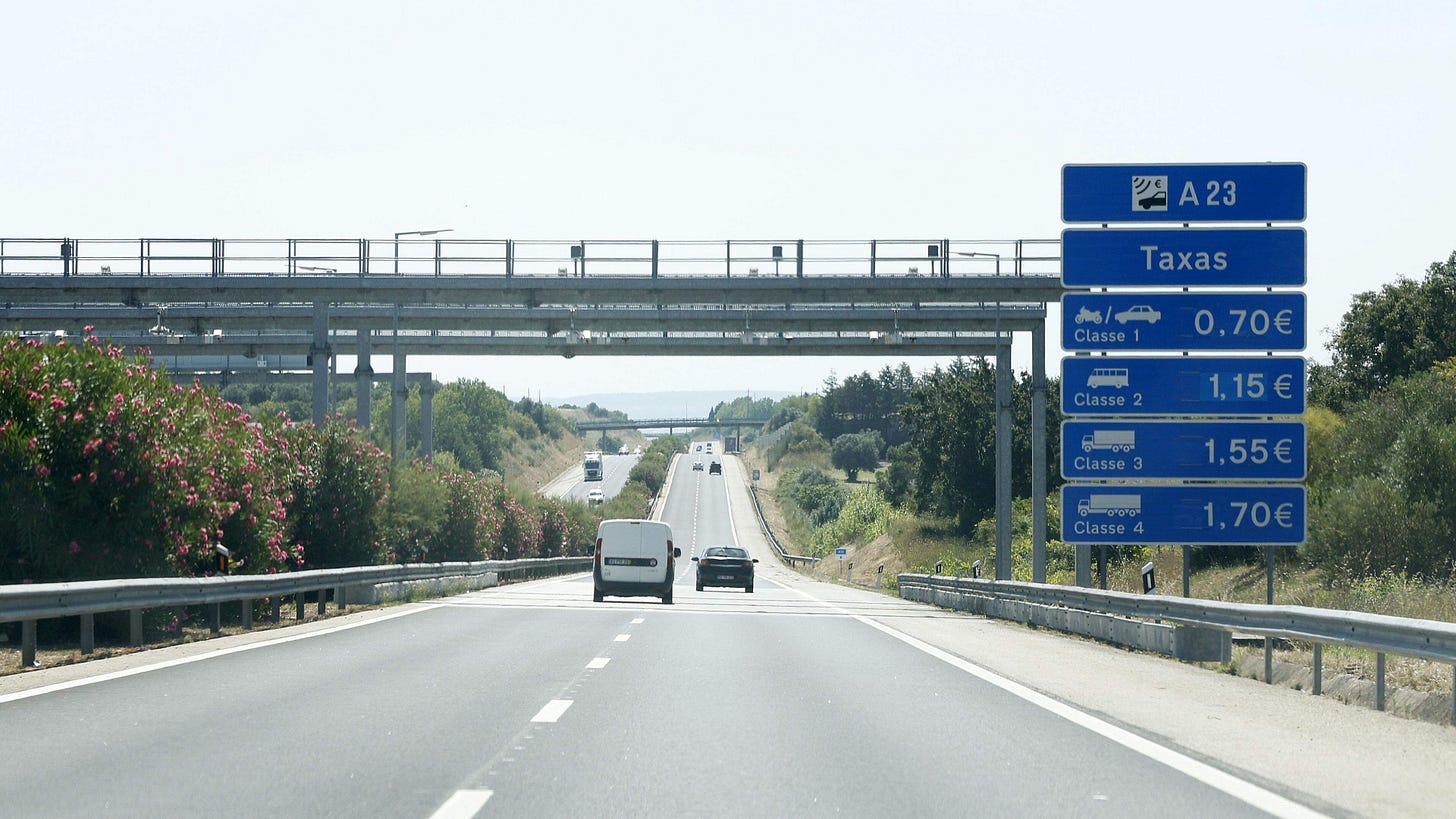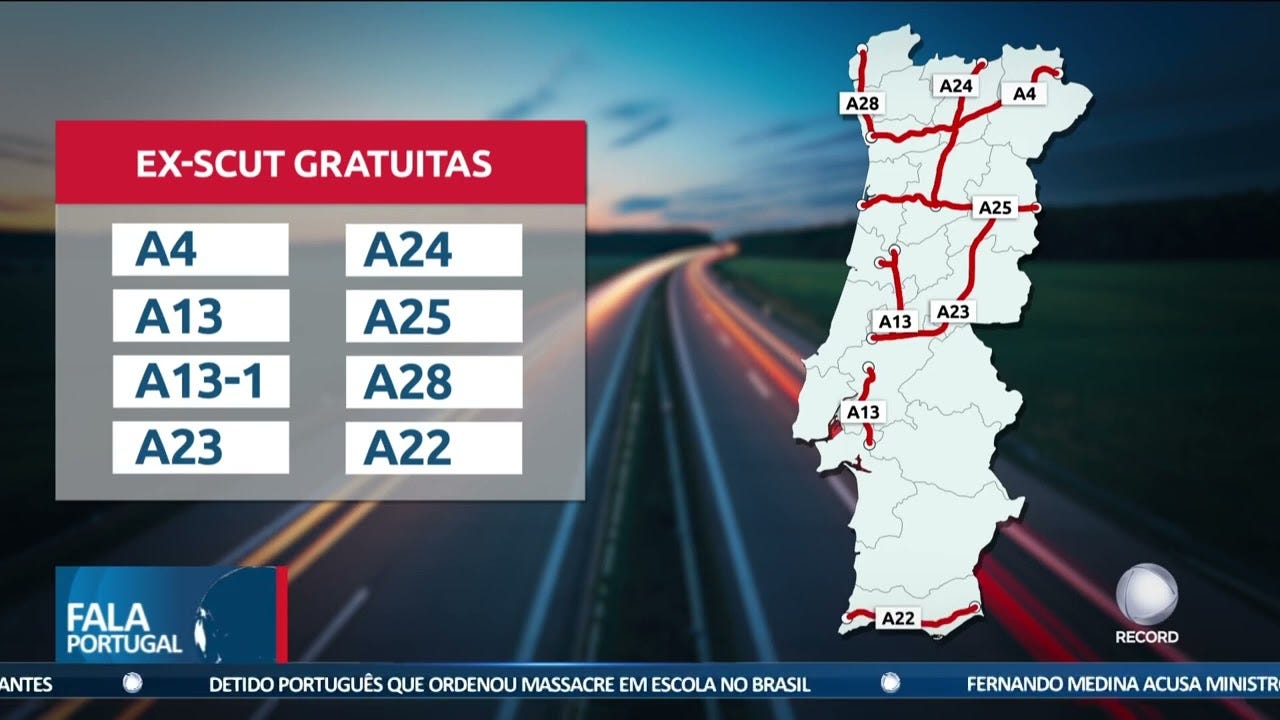Almost 1000 km become toll-free across Portugal
The 2025 State Budget (OE), which came into force on Wednesday, establishes the end of road charges on eight motorways, from 1 January 2025.
What?
Travelling by car from the north to the south of Portugal is now cheaper.
From January 1, drivers across Portugal can enjoy almost a thousand kilometres on free highways, following the Parliament’s approval last June of a bill that “eliminates toll fees on sections and sub-sections of highways in the Interior or where there are no alternative routes that allow quality and security”.
The 2025 State Budget (OE), which came into force on Wednesday, establishes the end of road charges on eight motorways, mostly ex-SCUTs (motorways at no cost to the user), from 1 January 2025, especially in the interior and the Algarve.
The tolls scraped from January 2025 onwards are:
A4: Transmontana and Marão Tunnel
A13: Pinhal Interior
A13-1 Pinhal Interior
A22: Algarve
A23: Beira interior
A24: Interior Norte
A25: Beiras Litoral and Alta
A28: Minho in sections between Esposende and Antas, and between Neiva and Darque
State to lose 180 million euros
According to the 2025 State Budget report, the abolition of these tolls is estimated to have an impact of “180 million euros”.
However, this figure is likely to be higher. The report also predicts a “reduction in the costs of the toll collection service, essentially as a result of the exclusion of the values relating to the stretches and sub-stretches”, but does not quantify this.
SCUT tolls were introduced in Portugal in 1997, with the cost of building and maintaining the roads being borne entirely by the state. From 2011 onwards, however, road tolls were introduced.
The Plataforma P'la Reposição das Scut (“Platform for the Replacement of the Scut”) on the A23 and A25, which has persistently campaigned for the elimination of tolls on these roads, considers that the end of tolls “does justice to the population and businesses in the interior of the country”.
Opposing opinions are held by organisations such as the Portuguese Association of Motorway or Toll Bridge Concessionaires (APCAP), the Portuguese Taxpayers’ Association (APC) and the Portuguese Association of Railway Companies (APEF), which have criticised the end of tolls on these roads.
APCAP and APC pointed out that the end of these tolls will transfer the costs of building and maintaining the infrastructure from users to taxpayers in general, while APEF considered that the decision penalises the railway, which is why it demanded fair measures.
Socialist party backed
The approval of the law was controversial, with the parties that support the government accusing the Socialists of ‘hypocrisy’ and ‘incoherence’, given that in February 2023, the parliament, at the time with a Socialist majority, rejected, with the PS voting against, laws from the PSD, Chega and PCP to reduce or eliminate tolls on the old SCUTs.
The Socialist party had advocated for an immediate removal of all said tolls, whereas the Conservatives voted to gradually reduce payments at the highways.
On the occasion, the PS parliamentary leader, Eurico Brilhante Dias, recalled that motorway tolls have been decreasing under Socialist governments, accusing the Social Democrats of ‘political opportunism’.
The Socialist’s proposal was ultimately backed with Chega’s support, as well as all the parties on the left (the Socialist Party, the Left Block, the Communist, Livre and greens PAN).
The PS bill to end tolls in the former SCUT was approved last May, in the Assembly of the Republic, and the law that eliminates them was published on August 7, in the Diário da República.





